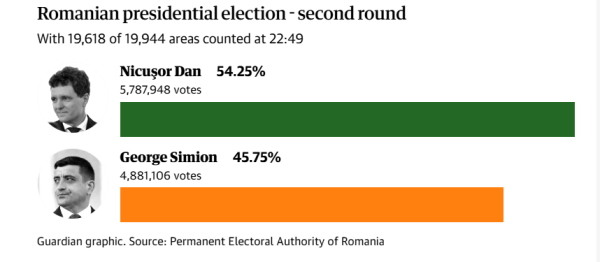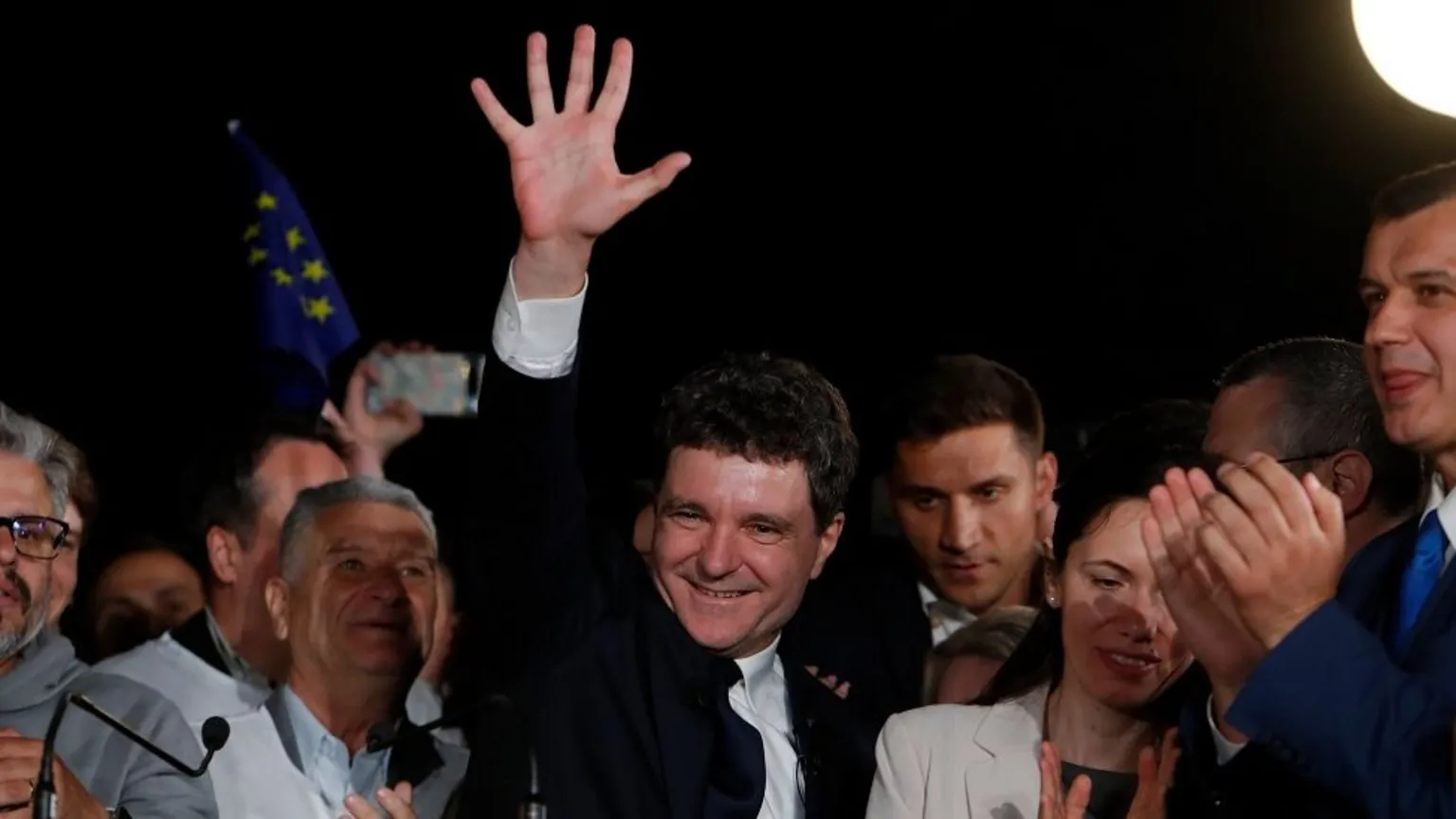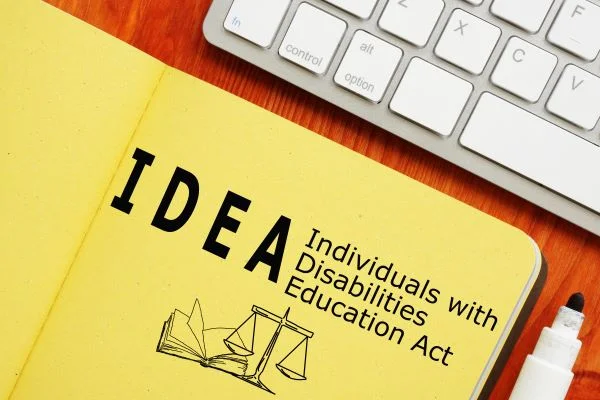On May 18, 2025, Nicusor Dan, the mayor of Bucharest and a former mathematics professor, defeated George Simieon in what many consider to be an “upset” victory. Dan, a centrist-leaning candidate who advocated for a pro-Western foreign policy as well as further integration of Romania into the European Union and NATO, ran as an independent candidate in the 2025 Romanian presidential election. Dan, who studied and earned his PhD in Paris, first entered politics in 2012, running as a candidate for Mayor of Bucharest. Dan lost the 2012 election as well as the 2016 election for Mayor of Bucharest, establishing a political party known as the “Save Bucharest Union”, which was changed to the “Save Romania Union” after the 2016 mayoral election as a shift toward national politics. Dan won the election for mayor of Bucharest in 2020 as an independent, presenting himself as a moderate conservative who was opposed to corruption in Romania and ran a pro-EU platform.
In contrast, George Simion, the far-right candidate and widely considered the likely winner of the presidential election, promoted and advocated for socially conservative values such as opposition to gender quotas as. He also advocated for a nationalistic agenda, supporting the unification of Romania and Moldova on the basis of cultural, ethnic, and religious similarities between the two nations. Simion’s support for Romanian Irredentism is supported by the platform of his political party, the Alliance for the Union of Romanians (AUR), who advocate for the four pillars: Family, Christian Faith, Liberty, and Nation. The party has been accused of xenophobia, homophobia, and magyar-phobia, meaning discrimination toward Romania’s minority Hungarian population. Simion is also considered to be largely aligned with the political views of President Trump, namely his opposition to sending military aid to Ukraine and support for negotiations to end the Russo-Ukraine War, a platform similar to the U.S president.
Romanian presidential elections, like many European presidential/parliamentary elections, follow a two-round election, meaning that if a candidate does not win a majority of the vote in the first election, a “run-off” or second round is implemented where the two candidates with the most votes in the first round progress in the second round election, in which the candidate with the majority of the vote is declared the winner. The 2025 Romanian presidential election, which was held after the 2024 election was annulled due to alleged Russian interference, consisted of 11 candidates in the first-round of the election, in which Simion and Dan were the top two contenders, with Simion winning 40.96% of the votes (3,862,761) and Dan winning much less, with only around 21% of the votes (1,979,767). Due to the stark differences in the electoral results between Dan and Simion in the first round, many considered Simion to likely win the run-off election. During the second-round election, however, Dan won around 53.6% of the vote, in contrast to the likely-front runner Simion, who was 46% of the vote. Dan gathered around 32% more votes than his first-round election, while Simion only saw a 6% percent increase compared to his first-round performance.

Dan’s victory in the 2025 Romanian presidential election will likely cause a shift in the trend of Eastern Europeans’ politics toward more right-wing ideologies and beliefs. The results will likely also have implications on the geopolitical impact of the Russo-Ukrainian conflict. Europe as a whole has seen a shift toward far-right politics, such as the German AFD’s surge in popularity and legislative victories, Poland’s tight election between pro-EU and Far-Right candidates, and the increasing popularity of Euroscepticism among the electorate in Europe. According to The New York Times, Dan has campaigned as a candidate committed to both NATO and the EU, much to the disappointment of Europe’s far-right political parties, which advocate for a more nationalistic foreign policy. Dan’s election also has an impact on the Russo-Ukraine War, as his pro-Ukraine sentiment will further advance Bucharest’s support to Kyiv, with Ukrainian President Volodymyr Zelensky congratulating Dan on his victory on X.








